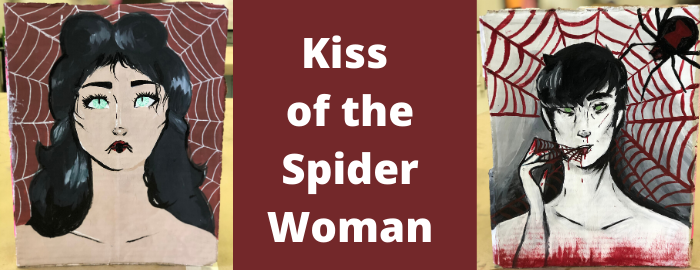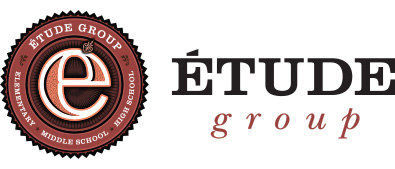
Students at Étude High School have the opportunity to choose between four humanities classes throughout their four years of schooling. The Issues and Ethics course delves into specific issues facing today’s world at large and encourages students to consider the ethical and moral implications in dealing with potential problems and issues on a global scale. This year’s Issues and Ethics class is participating in the University of Wisconsin - Madison’s Great World Text in Wisconsin program. Great World Text is a program for teachers and high school students across the state to study literature and history through the humanities lens.
This year the UW Center for the Humanities selected Kiss of the Spider Woman, a 1976 novel by Argentine writer Manuel Puig about two political prisoners in the Dirty War that use movies to escape the realities of their confinement. While students studied the novel in the English portion of Issues and Ethics, they investigated the Dirty War, history of Argentina, and the political connections between Argentina and the United States in the Social Studies portion.
This Kiss of The Spider Woman project is a cartonera that tells about Argentina’s Dirty War tragedies through the lens of a children’s book. Cartoneras are a collection of art forms bound together with free, reusable materials like cardboard, that make social and political statements. This cartonera exposes the censorship of the public during the Dirty War. Étude Juniors Abby Coutts, Payton Damkot and Marie Grawein created a Cartonera focused on the kidnappings and missing people of the Dirty War, homosexual relationships (as an homage to Molina, main character of Kiss of the Spider Woman), and a dramatized version of how Argentina would look in the news media, with everything being censored and withheld.
“I really liked that the book was written in dialogue. I have never read a book like this one. The movies that Molina references and the scientific studies in the footnotes helped me understand the world that Molina and Valentin live in” (Coutts).
They wanted to portray the way the Argentinian government censored its people in an interesting way. For them, that meant taking the idea of “censorship” to an extreme, by making the Dirty War “child-friendly”. In their research, they read about Juan Peron and his wife Isabel Peron, and how under Peronism, the country of Argentina had to suffer through a lack of education in their school system. The Perons’ also heavily censored the news media, using their power to have anybody that opposed them fired, or worse. The images of the children’s book reveals this; however, when a blacklight is held to the pages, the realities of the Dirty War are revealed to the readers through graphic images and changes in language.
“My favorite part of this project was probably creating the front and back cover using the descriptions Puig provided in the novel. The back cover portrays the toxicity of the venomous Dirty War and the crimes committed against the people of Argentina” (Damkot).
Étude students participating in Great World Text will formally present their projects on March 9 at UW-Madison.

